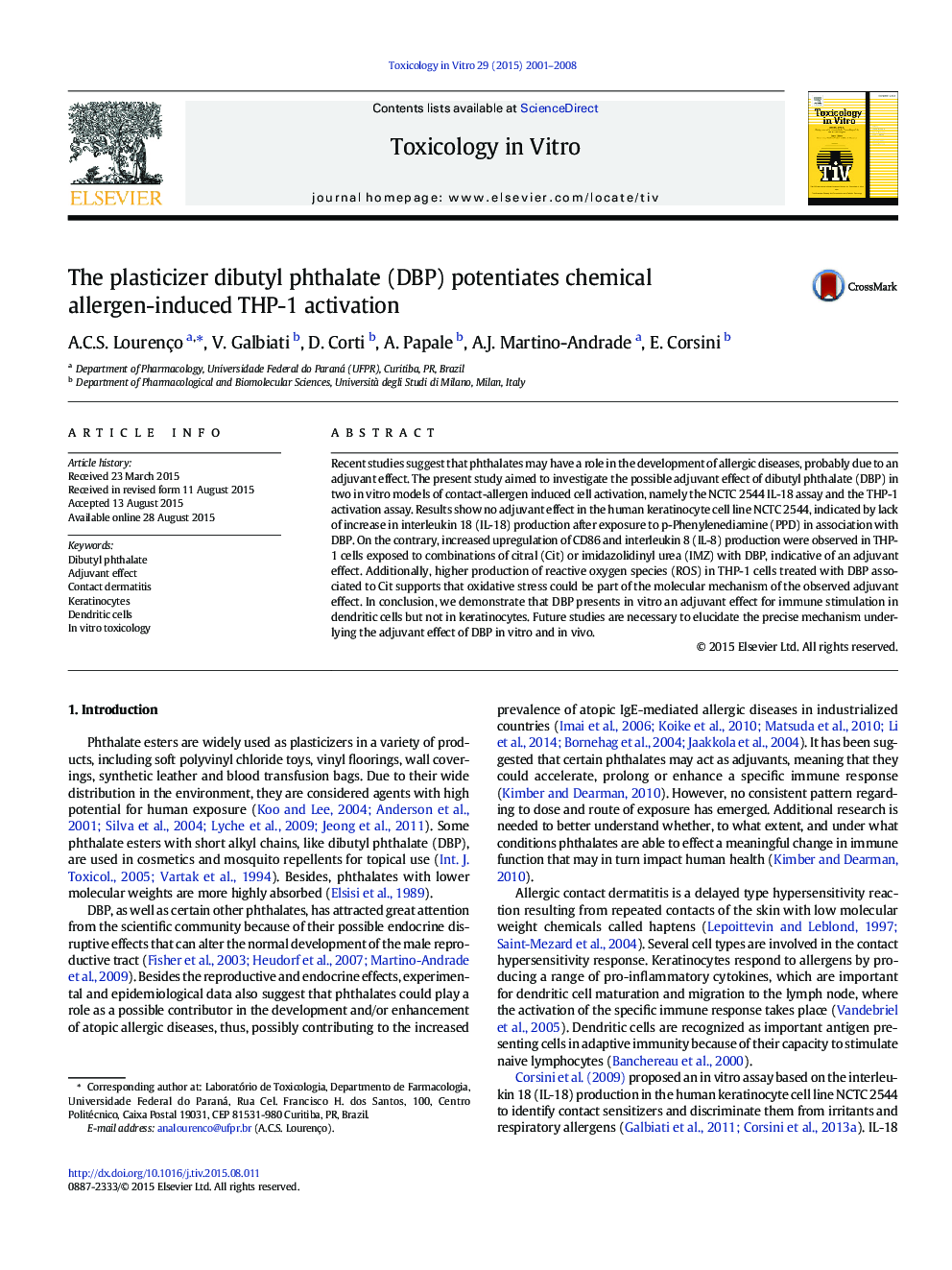| Article ID | Journal | Published Year | Pages | File Type |
|---|---|---|---|---|
| 5861321 | Toxicology in Vitro | 2008 | 8 Pages |
â¢Adjuvant effect of dibutyl phthalate in allergen induced cell activation is reported.â¢The adjuvant effect was observed in dendritic cells but not in keratinocytes.â¢Oxidative stress plays a role in the molecular mechanism of this adjuvant effect.
Recent studies suggest that phthalates may have a role in the development of allergic diseases, probably due to an adjuvant effect. The present study aimed to investigate the possible adjuvant effect of dibutyl phthalate (DBP) in two in vitro models of contact-allergen induced cell activation, namely the NCTC 2544 IL-18 assay and the THP-1 activation assay. Results show no adjuvant effect in the human keratinocyte cell line NCTC 2544, indicated by lack of increase in interleukin 18 (IL-18) production after exposure to p-Phenylenediamine (PPD) in association with DBP. On the contrary, increased upregulation of CD86 and interleukin 8 (IL-8) production were observed in THP-1 cells exposed to combinations of citral (Cit) or imidazolidinyl urea (IMZ) with DBP, indicative of an adjuvant effect. Additionally, higher production of reactive oxygen species (ROS) in THP-1 cells treated with DBP associated to Cit supports that oxidative stress could be part of the molecular mechanism of the observed adjuvant effect. In conclusion, we demonstrate that DBP presents in vitro an adjuvant effect for immune stimulation in dendritic cells but not in keratinocytes. Future studies are necessary to elucidate the precise mechanism underlying the adjuvant effect of DBP in vitro and in vivo.
